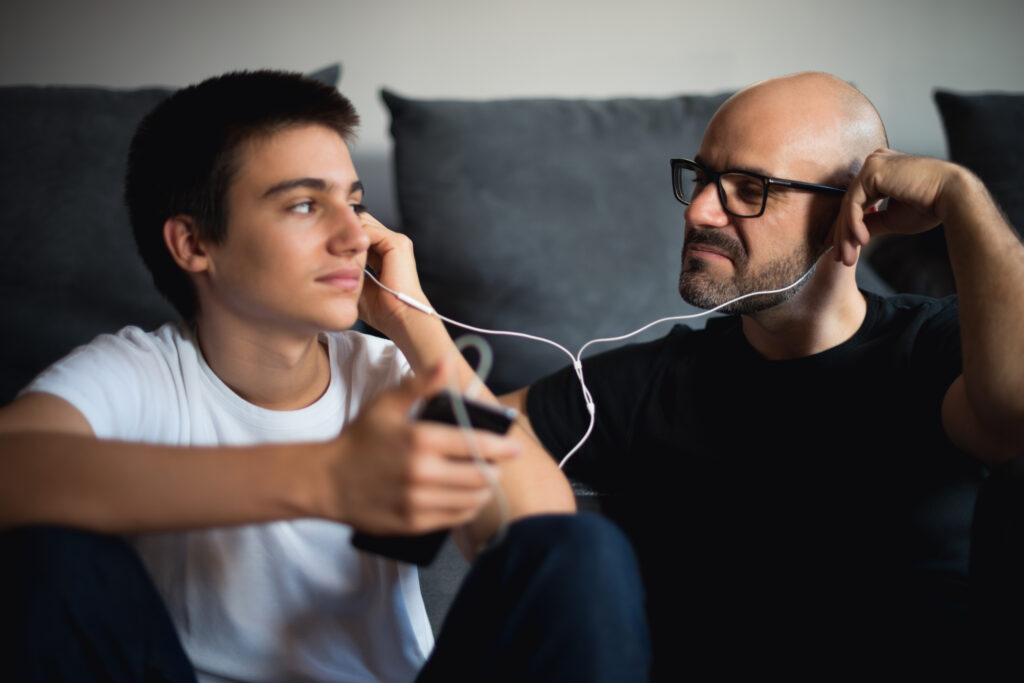
Before starting a conversation with your adolescent, it may be useful to look for common ground themes and subjects. A good way to start a conversation may be talking about a TV programme you both like, football or other sports you both enjoy playing, or a hobby you both have. The conversation may flow easily and effortlessly when you start discussing something you both enjoy.
When in doubt about how to follow the conversation, just listen and be there for them, avoiding any defensive response whenever possible. Closed questions are those that can be answered with a monosyllable like “yes,” “no,” or “fine.” Instead, use open questions like: “What is the most interesting subject at school?” “Who are your favourite teachers and what do you think are their strengths?” “Do you think teachers at your school enjoy the lessons?” “Are there many popular children in your school?” “Why do you think they are so popular?” “Do teenagers at your school enjoy talking to each other?” “What are their favourite movies and video games?” These kinds of questions require a more elaborate answer and allow them to offer an opinion and show how they think about different subjects and their world.
Once they start talking, try to resist the urge to offer unsolicited advice and provide a safe and empathetic environment for them to share their concerns without feeling judged. It is easier to start talking to your adolescent if you make it casual and not the main situation. For example, it may be easier to ask them something while you are doing the dishes, making the bed, or cleaning around. This way, they do not feel like the centre of attention, which may reduce the perception of a parent intruding in the adolescent’s private life. Try not to make eye contact at the very beginning of the conversation to avoid them feeling as if they are the target of an interrogation. This way, it will not be as hard for them to open up to a dialogue with you.
It may be easier to start talking to your adolescent if you make it casual and not the main situation. For example, ask them something while doing the dishes or cleaning around. Try not to make eye contact at the very beginning of the conversation to avoid them feeling as if they are the target of an interrogation
Dr Emma Allende
A good place to start a conversation is the family car when you are both alone, as you do not make direct eye contact. A walk in the park or any natural environment helps to feel calmer and more relaxed, easing up the conversation. Start with short, frequent conversations. Do not get discouraged if they cut the conversation and leave; just wait for another time, and gradually the conversations will become deeper and longer.
Sharing some emotional difficulties or problems you had as an adolescent may help to bond with your teen. Make it okay not to be okay, not to be in the mood, or not to want to engage in conversation. Ask them to help you with anything they master, like technology, and thank them. Make them feel they have made a real difference in your life by helping you.
Starting a conversation with your teenager can seem difficult at the beginning, but by letting them know that you are there for them, that it may not always be easy to connect with each other, but that you love them and will always be there for them, barriers will come down and ease the relationship you have with your adolescent.






